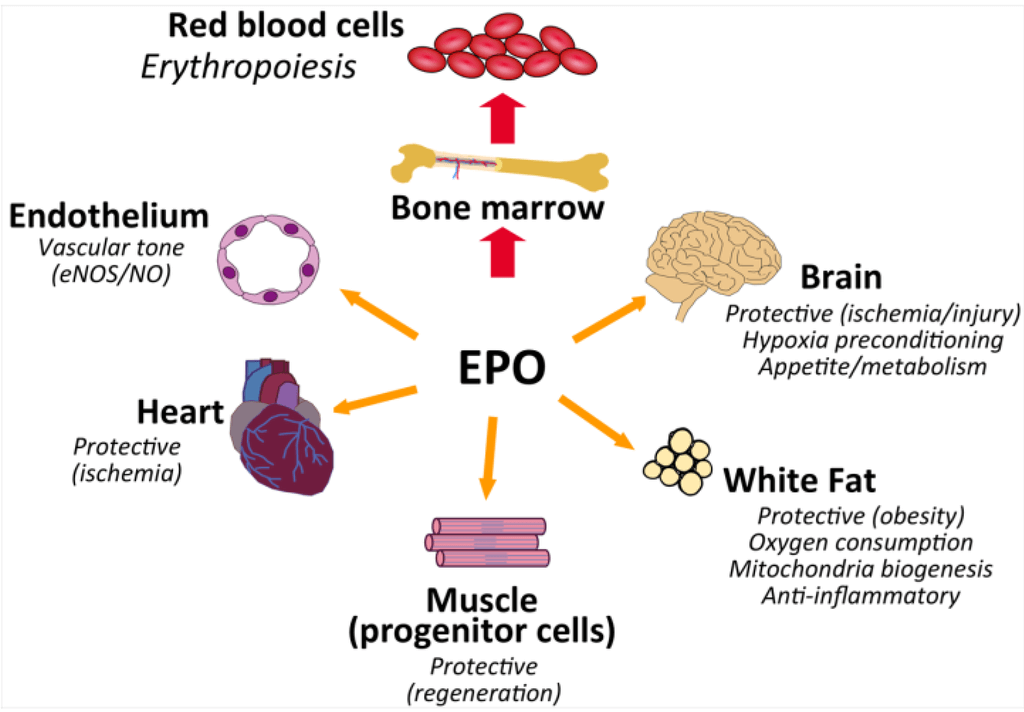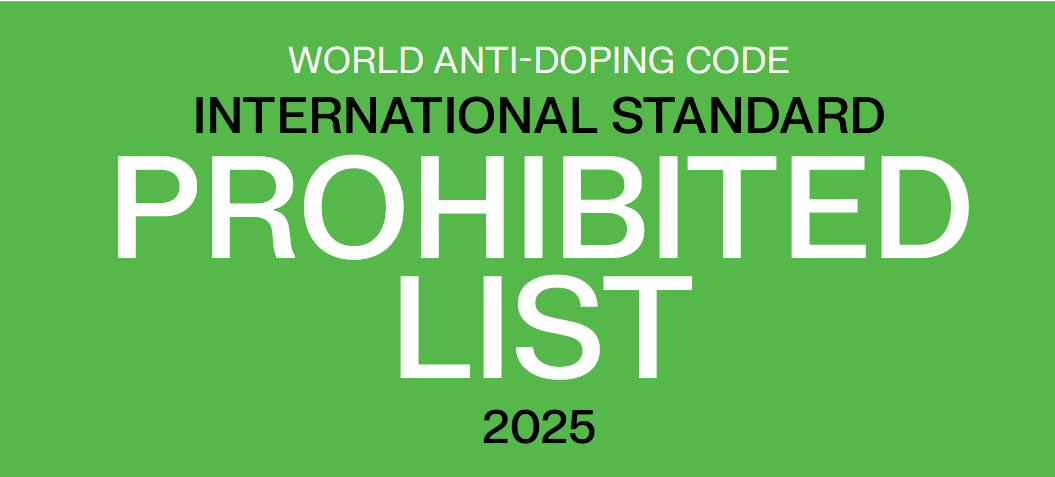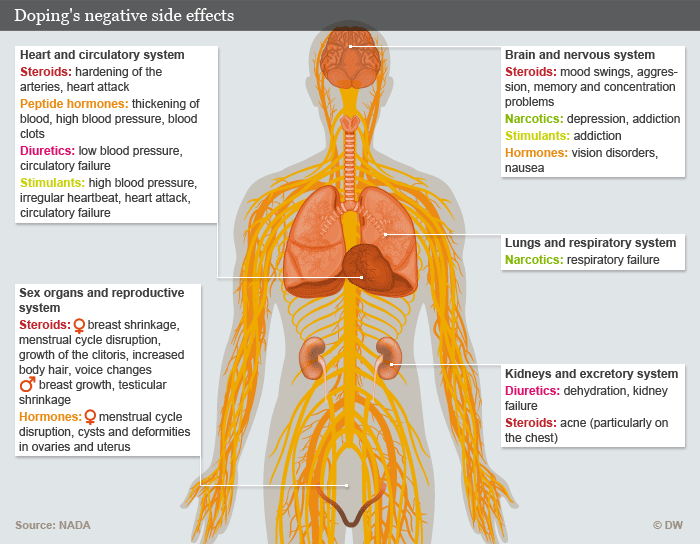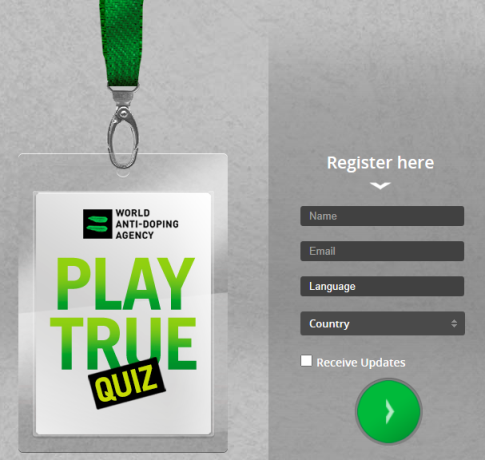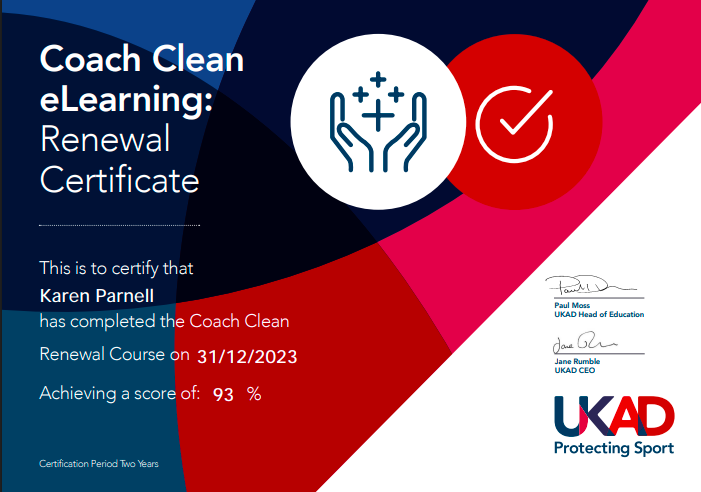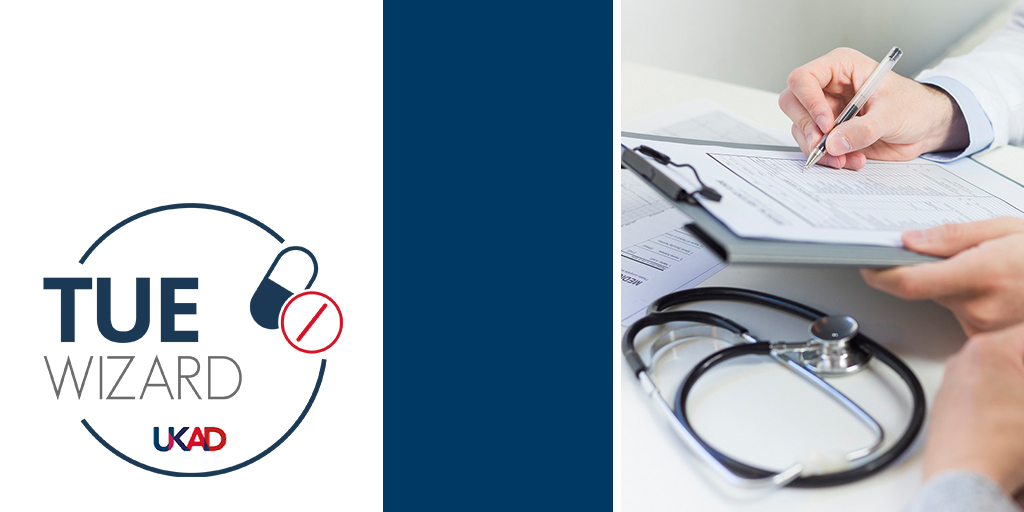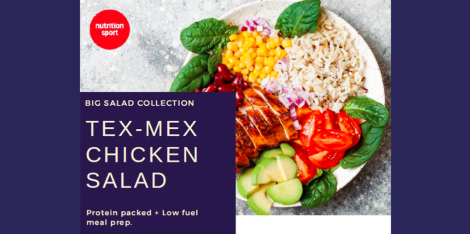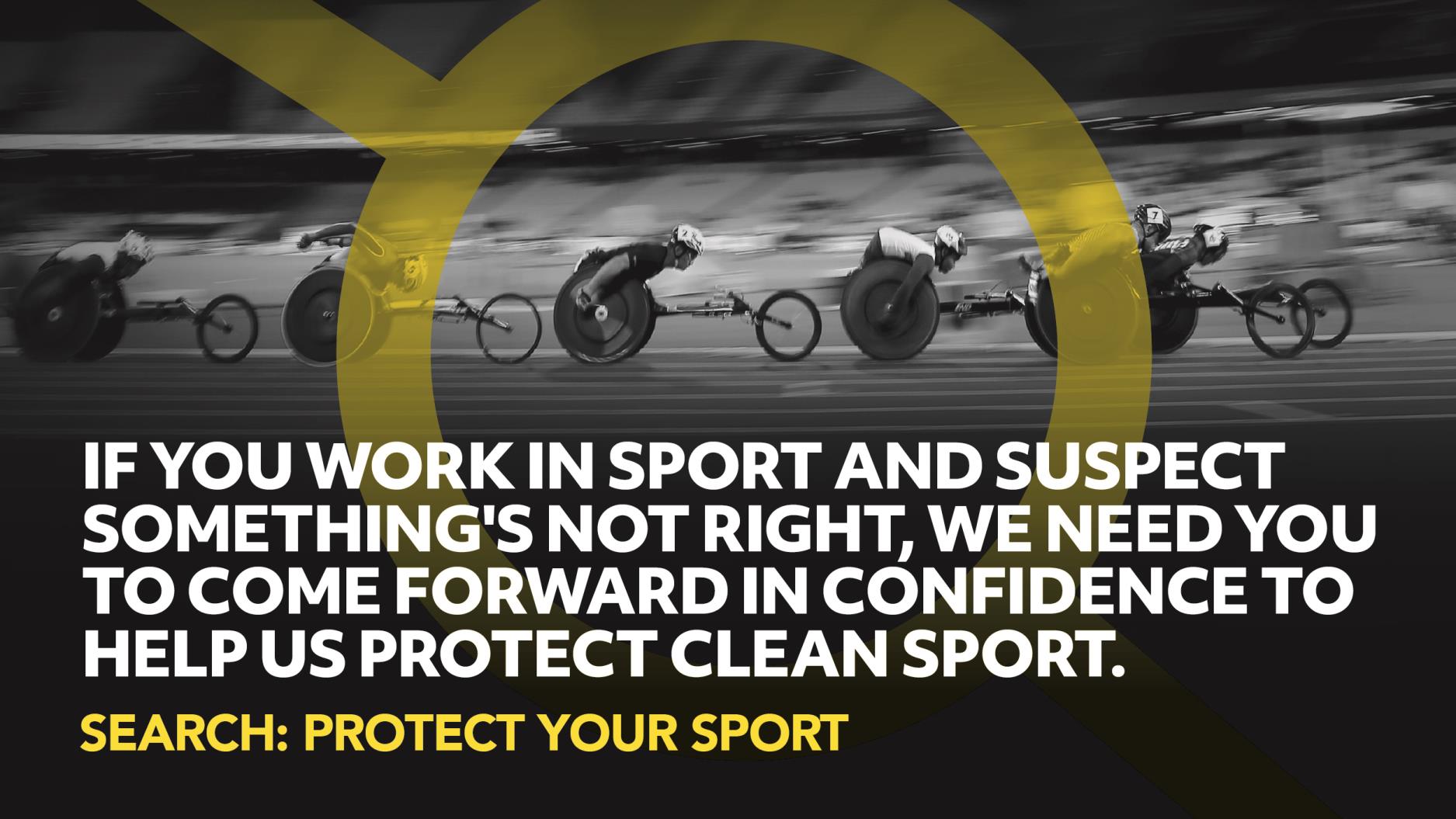Doping in Age Group Triathlons: A Growing Concern in the Pursuit of Excellence
 Karen Parnell
April 21, 2025
Karen Parnell
April 21, 2025
Doping in Age Group Triathlon: A Growing Concern in the Pursuit of Excellence
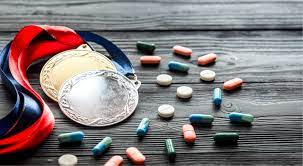
We read about professional triathletes in doping scandals, and you may be thinking that this does not apply to you, but you as an Age Group athlete can be tested at events. Also, you may not take banned substances intentionally and accidently take contaminated supplements, bars, drinks, or gels – how do you avoid doing this?
Back in 2018 three Age Group triathletes were banned from the sport for 4 years after testing positive for banned substances at the IRONMAN world championships in Kona.
Did you know that any athlete registering and competing in an IRONMAN event is subject to both in and out of competition testing. This includes both professional and age group athletes.
Age-Group athletes competing in World Triathlon (WT) and Europe Triathlon (ET) Championships are also bound by the World Triathlon Anti-Doping Rules whereby all athletes are subject to the World Triathlon test distribution plan and can be tested.
In the world of sports, the pursuit of greatness is both thrilling and challenging. It's about pushing your boundaries, conquering personal goals, and sharing a passion for competition. But there's a darker side that threatens the very essence of fair play – doping. And yes, it affects you, the age group triathlete, more than you might think.
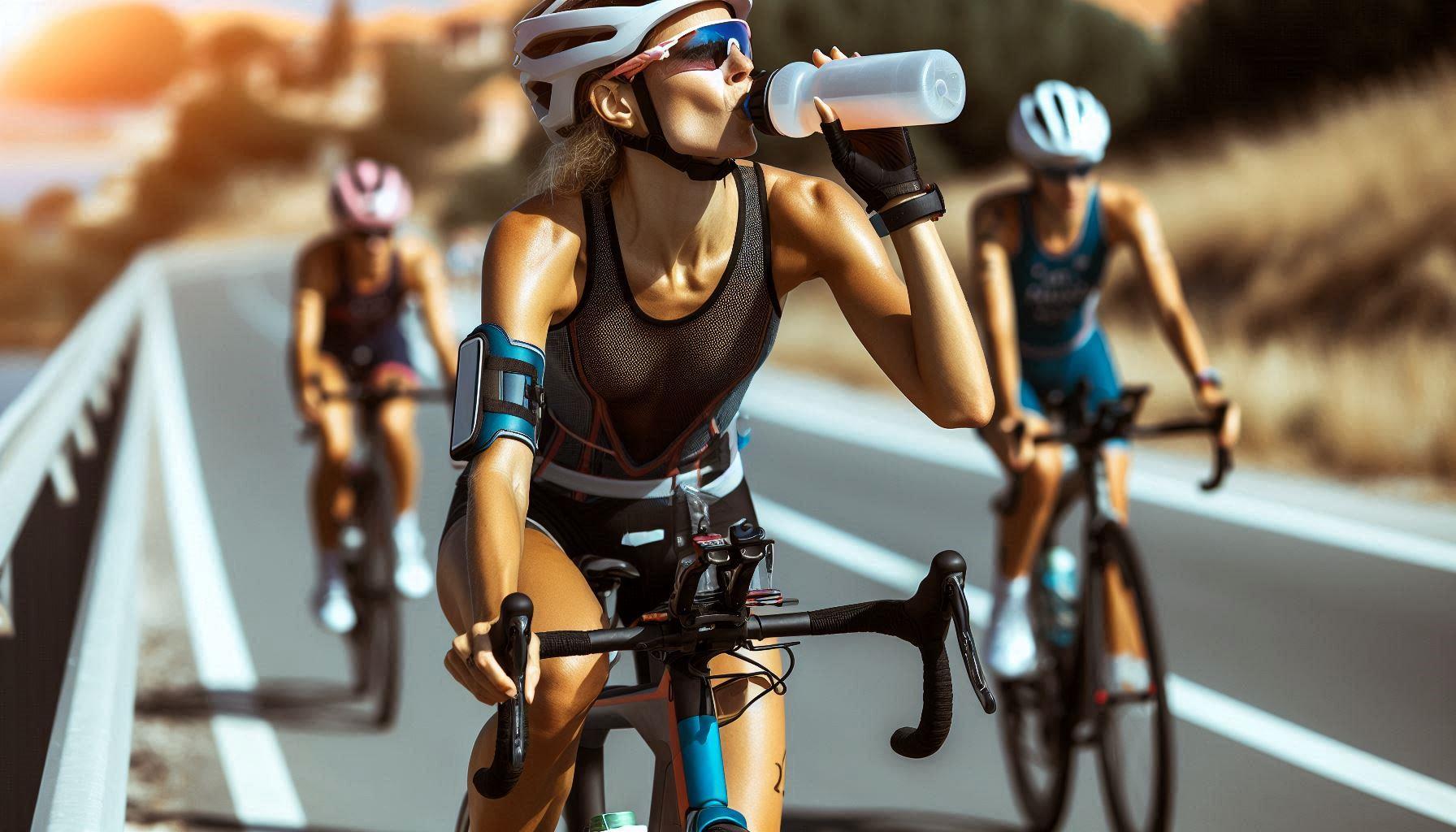
As an age group triathlete, you contribute your dedication and enthusiasm to the sport, adding vibrant colours to the multisport community. However, doping casts a shadow over this spirited pursuit, compromising the integrity of fair competition and disrupting the level playing field.
Fairness is at the heart of every sport, where your hard work, talent, and perseverance should determine success. But doping, the use of prohibited substances or methods to gain an unfair advantage, skews this balance, robbing you of the genuine sense of achievement you work so hard to earn.
While the spotlight often falls on elite athletes, age group triathletes are equally vulnerable to the allure of shortcuts promising quicker results. The impact of doping on your personal journey is profound, undermining your efforts and sacrifices, and leaving you disillusioned.
In this article, we are delving into the world of doping in age group triathlons, and how it directly affects you. We will explore the rules and regulations in place to protect clean competition, the consequences of doping, and why ethical choices matter. Moreover, we will look at why real food is always best, and we will highlight supplement checker websites as valuable tools to ensure safe and compliant nutrition if you choose to use bars, gels, and other supplements.
Together, let's arm ourselves with knowledge and resources to navigate the complexities of doping. By standing strong in our commitment to integrity, we can safeguard the essence of fair play that makes triathlons a testament to the indomitable human spirit. It's time to reignite the passion for clean competition and inspire each other to achieve greatness without compromise.
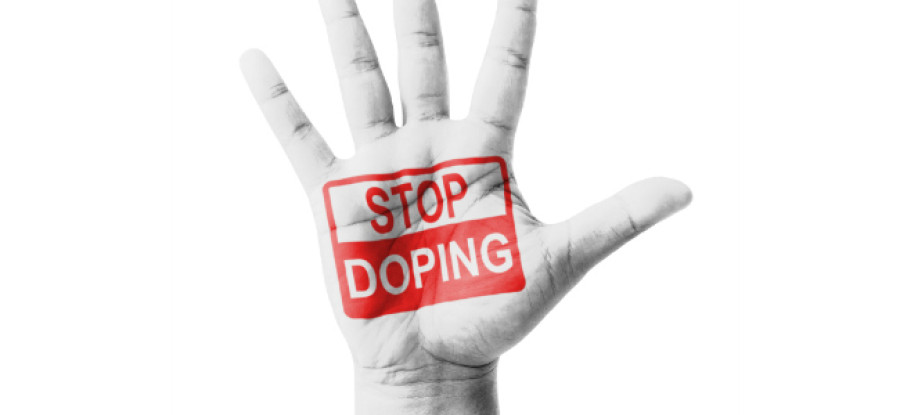
What is Doping in Sports?
Doping in sports refers to the use of prohibited substances or methods by athletes to gain an unfair advantage over their competitors. It involves the intentional use of performance-enhancing drugs or techniques that are banned by sport’s governing bodies. The aim of doping is to boost an athlete's performance beyond their natural abilities, thus achieving results that are not achievable through hard work and legitimate training alone.
The World Anti-Doping Agency (WADA) plays a pivotal role in the fight against doping in sports. Established in 1999, WADA is an independent international organization tasked with promoting, coordinating, and monitoring the global efforts to combat doping in all sports. WADA collaborates with international sports federations, national anti-doping organizations, and other stakeholders to develop and enforce the World Anti-Doping Code.
The World Anti-Doping Code sets out the anti-doping rules and regulations that athletes and sports organizations must adhere to. It includes the list of prohibited substances and methods that are not allowed in sports competitions. Athletes, coaches, and support personnel are obligated to comply with these rules to ensure fair play, protect the health of athletes, and preserve the integrity of sports. WADA conducts anti-doping education and research to stay ahead of doping trends and enhance the effectiveness of anti-doping efforts worldwide. By upholding the values of clean and fair competition, WADA aims to inspire athletes of all levels to achieve success through dedication, skill, and ethical practices.
World Anti-Doping Agency - The Doping Control Process for Athletes
Anti-Doping Rules for Triathlon
World Triathlon (formally the International Triathlon Union (ITU)) and the World Anti-Doping Agency (WADA) have jointly established stringent anti-doping rules and regulations to ensure clean and fair competition in the sport of triathlon. These rules apply to athletes participating in all levels of triathlon events, including age group triathletes.
Triathlon, being a multisport discipline, comes under the purview of the World Anti-Doping Code, which sets the foundation for anti-doping efforts across various sports. World Triathlon (WT), as the governing body for triathlon, aligns its anti-doping policies with WADA's Code to maintain consistency and uniformity in the fight against doping.
The list of prohibited substances and methods in triathlons is comprehensive, encompassing a range of drugs and techniques that could potentially enhance an athlete's performance.
Some of the commonly banned substances include anabolic steroids, growth hormones, erythropoietin (EPO), stimulants, and diuretics. These substances are known to provide advantages such as increased muscle mass, improved endurance, and enhanced recovery, all of which can significantly impact an athlete's performance in triathlons.
EPO 101:Use and Risks from Selfhacked.com
Additionally, certain methods, such as blood doping, manipulation of urine samples, and gene doping, are also strictly forbidden in triathlon competitions. Blood doping involves the transfusion of blood or blood products to increase oxygen-carrying capacity, while gene doping involves altering an athlete's genes to enhance physical attributes.
It is crucial for all age group triathletes to be aware of these prohibited substances and methods, as any unintentional use of banned substances can lead to severe consequences, including disqualification and suspension from competitions. Adhering to the anti-doping rules not only ensures fair competition but also safeguards the health and well-being of athletes.
As an age group triathlete, understanding and abiding by these anti-doping regulations will contribute to maintaining the sport's integrity and upholding the values of clean and ethical competition. By competing with honesty, dedication, and the spirit of fair play, age group triathletes can inspire others and create a positive impact on the triathlon community as a whole.
Older Female AG Athletes
Some older female athletes may be menopausal and taking Hormone Replacement Therapy (HRT) to alleviate symptom and preserve bone density and muscle mass. Some HRT contain testosterone which is on the banned substance list. If you are taking HRT, then check with your local anti-doping body if you need a TUE for your medication. See the section below on TUE's to see if you need one for your medication.
Doping Bans and Penalties
Picture this: You've been training relentlessly for that upcoming age group triathlon, fuelled by determination and dreams of triumph. In the heat of the competition, the temptation to seek a shortcut becomes too strong, and you decide to try a performance-enhancing substance. But here's the hard truth: doping is not just against the rules; it can cost you dearly.
If caught using a banned substance in age group triathlons, the consequences are severe. The governing bodies, including World Triathlon and the World Anti-Doping Agency (WADA), impose strict penalties to maintain the fairness and integrity of the sport. Bans and disqualifications are handed out to those who violate anti-doping rules, regardless of their skill level or intentions.
As an age group triathlete, the responsibility ultimately falls on you to know and adhere to the rules. Ignorance is not an excuse. Before taking any supplement or medication, it's crucial to check for banned substances and verify its compliance with anti-doping regulations.
Supplement checker websites can be valuable tools in this regard, ensuring you stay on the right side of the rules and competition., more on this later.
A doping violation can lead to a suspension from competition, preventing you from participating in events for a specified period. The ban can severely hinder your progress, stalling your journey to achieve personal bests and potentially dashing your dreams of qualifying for higher-level competitions.
Moreover, the penalties don't just affect your athletic endeavours. A doping sanction tarnishes your reputation as an athlete, eroding the trust and respect earned from your fellow competitors, coaches, and the triathlon community. It's a heavy price to pay for a momentary lapse in judgment.
Now, regarding responsibility, it primarily lies with you, the athlete. However, it's essential to acknowledge the role of coaches and support personnel. As an age group triathlete, your coaches play a significant role in guiding your training and preparation. It's vital to have open communication with your coaches and ensure they are well-informed about anti-doping rules. Together, you can uphold the values of clean sport and make ethical choices that promote a culture of fair play.

Doping Bans and Penalties in a Nutshell
For Anti-Doping Rule Violations of presence or use of a prohibited substance, the basic rules are as follows:
- If you intended to cheat, whatever the substance, the period of ineligibility is four years
- Otherwise, it is two years – unless you can show you had no significant fault or negligence, in which case ineligibility may be reduced by up to a maximum of one year (that is, to a minimum ineligibility of one year)
- If the violation involved a specified substance or a contaminated product, and you can demonstrate you had no significant fault, ineligibility may range from two years to a reprimand (depending on your level of fault)
If you can show you had no fault or negligence, the period of ineligibility may be eliminated entirely, resulting in no ban from sport.

The Concise List of Doping Bans in Sport
Doping Impact on Age Group Triathletes
As an age group triathlete, you're no stranger to the drive for improvement and the pursuit of personal bests. However, in the world of endurance sports, the pressure to excel can sometimes lead to temptations that threaten the very fabric of fair competition – doping. Understanding the potential impact of doping is crucial to safeguarding your athletic journey and long-term well-being.
Temptations to Use Doping Substances
In the quest for success, age group athletes might be lured by the allure of doping substances for various reasons. The desire to keep up with competitors or attain a competitive edge can create immense pressure, making the idea of using performance-enhancing drugs seem appealing. Additionally, the fear of falling behind or not living up to personal expectations may drive some to consider taking shortcuts in pursuit of quicker achievements.
Potential Health Risks for Younger and Older Athletes
Doping may promise short-term gains, but it comes at a steep price. For younger age group triathletes, whose bodies are still developing, the use of banned substances can disrupt natural growth patterns and lead to long-term health complications. Hormonal imbalances, stunted growth, and potential damage to organs are some of the significant risks.
On the other hand, older age group athletes may face additional health challenges. The strain of intense training, combined with the effects of doping, can exacerbate age-related health issues. Cardiovascular problems, kidney damage, and compromised immune function are just a few of the potential dangers that come with doping.
Athlete Growth
Remember, your journey as an age group triathlete is about more than just chasing results. It's about embracing the process of growth, setting realistic goals, and celebrating every achievement earned through dedication and hard work. By choosing the path of clean and ethical competition, you not only protect your health but also contribute to preserving the integrity of the sport you love.
As you navigate the ups and downs of your triathlon journey, stay true to the values of fair play, integrity, and sportsmanship. Embrace the challenges and the lessons they bring, knowing that true greatness lies not in the shortcuts taken, but in the strength of character and resilience you display. Together, we can build a community of age group triathletes who inspire each other through honest competition and a shared passion for the sport.
How much do you know about Doping? Take the WADA Quiz
Training on Anti-Doping Rules
It’s extremely important for athletes, coaches, and support staff to keep up to date with the doping rules, code, and penalties. There are many online courses you can take for free to educate yourself on rules, the code and understand strict liability.
An important principle of the Code is strict liability, which states that athletes are solely responsible for any prohibited substances in their system, regardless of how it got there and if there was an intention to cheat. Before taking supplements, athletes must therefore assess the need, risk, and consequences to their sporting careers.
A good place to start is the WADA play true quiz where you can test your knowledge of anti-doping.
I have taken the UK Anti-Doping (UKAD) Coach Clean eLearning course which is free and is for coaches who want to know more about clean sport and understand their own responsibilities with regards to anti-doping. For athletes you can take the Compete Clean + course.
Clean Coaching Training is Advised for Every Coach - here's my certificate
What is a Therapeutic Use Exemption (TUE)?
The Therapeutic Use Exemption (TUE) process, outlined below, is a means by which an athlete can request approval to use a prescribed prohibited substance or method for the treatment of a legitimate medical condition.
Athletes should advise all medical personnel of their obligation to abide by the anti-doping rules of their sport and that any medical treatment received must not violate these rules.
Athletes should also check the status of all medications and treatments by visiting WADA’s website to review the Prohibited List or use the Global Drug Reference Online (Global DRO). It is important to check the status of all medications, supplements, and treatments on an annual basis as the list is updated annually (effective January 1). Even if a particular substance or method isn’t banned this year it does not necessarily mean that it won’t become prohibited in a subsequent year.
If the medication is not prohibited, athletes can start using the prescribed medication or treatment.
If the medication is prohibited, athletes should check with their prescribing physician or the sport’s medical personnel if there are any alternative medications or treatments that are permitted.
If there are no permitted alternatives, athletes should contact their National Anti-Doping Organization.
Only in emergency situations (e.g., allergic reaction, exacerbation of asthma, onset of Bell's palsy) should treatment begin without the necessary approval.
You can use the UKAD TUE checker to see if you need a TUE.
The UKAD TUE Wizard to check if you need a TUE
Emphasizing the Importance of Natural Foods and “Food First” Approach
When it comes to fuelling your age group triathlon journey, there's a world of options at your fingertips – from energy bars and gels to sports drinks and supplements promising a performance boost. However, amidst the sea of products, there's one fundamental principle that stands tall – the power of clean, natural nutrition.
Championing a Clean, Natural Approach
As you strive for peak performance, you might be tempted by the allure of quick-fix supplements and energy-boosting concoctions. While they may promise rapid results, it's essential to remember that true athletic excellence is built on a solid foundation of wholesome, natural foods. By nourishing your body with nutrient-rich whole foods, you provide it with the essential vitamins, minerals, and antioxidants it craves to function optimally.
You can check your macro requirements using are macro calculator.
Benefits of Eating Real, Whole Foods
The advantages of adopting a clean, natural approach to nutrition are plentiful, and they extend far beyond the racecourse. Whole foods, such as fruits, vegetables, lean proteins, and whole grains, provide a steady and sustained source of energy. They not only fuel your training sessions for optimum performance but also aid in your post-workout recovery.
Furthermore, natural foods offer a diverse array of nutrients that support your overall health, immune system, and vital organ function. Proper nourishment helps you build and repair muscle tissue, reduce the risk of injuries, and enhance your endurance – all factors crucial for your success as an age group triathlete.
Nutrition also has an impact on your sleep which is crucial for effective recovery. Nutrition also has an impact on stress levels so understanding what you eat is extremely important. The best way to understand exactly what you are eating and drinking is to prepare it yourself from scratch. This may sound daunting, but we have compiled some easy to prepare recipes here.
By choosing real foods over processed supplements, you also ensure that you're consuming fewer artificial additives and preservatives. This can have a positive impact on your digestive health and create a solid platform for long-term wellness.

UKAD advise athletes to take a “Food First” approach to nutrition and hydration. They say “You have a responsibility to make sure that anything you eat, and drink is safe to do so and does not contain any banned substances. Developing good clean sport habits now will help you in the future”. They have put together some great recipes to help you take this approach.
So, as you plan your meals and snacks, consider the abundant goodness that nature provides. Incorporate colourful fruits and vegetables, lean proteins, and healthy fats into your diet. Choose whole grains like quinoa and brown rice, and hydrate with good old-fashioned water.
In the whirlwind of performance-boosting promises, remember that the most powerful fuel for your triathlon journey is found in the simplicity and purity of natural foods. By nourishing your body with wholesome goodness, you lay the groundwork for a flourishing athletic career and a lifetime of well-being. Trust in the inherent power of real foods to carry you towards your goals and to celebrate every milestone achieved through clean, nourishing nutrition.
UKAD Champion "Food First" and have put some great recipes to help you this on their website
Supplement Checker Websites
As UKAD say “Food First” but if you do decide to use supplements, nutrition bars, gels, and hydration products during training then you can reduce the risk of inadvertent ingestion of banned substances via contamination in production, by using batch tested products.
There are several organisations that provided help for you to check your supplements, and these are listed below:
USADA’s dietary supplement safety education and awareness resource. The reality is that the use of dietary supplements can be risky, and that awareness, caution, education, and common sense must be exercised when considering their use. The resources of Supplement 411 will help you gain a better understanding of the dietary supplement issue and access the Supplement 411 High Risk List.
Informed-Sport is a quality assurance program for sports nutrition products, suppliers to the sports nutrition industry, and supplement manufacturing facilities. The program certifies that all nutritional supplements and/or ingredients that bear the Informed-Sport logo have been tested for banned substances by the world class sports anti-doping laboratory, LGC. Athletes choosing to use supplements can use the search function above to find products that have been through this rigorous certification process.
3. Human and Supplement Testing Australia (HASTA)
Human and Supplement Testing Australia (HASTA) is a division of Racing Analytical Services Ltd (RASL), a leading sports drug testing laboratory in Australia, accredited to ISO 17025. HASTA Certification involves not just testing, but verification of the manufacturing quality controls that the Sport Supplement manufacturer has in place. If a product has the "HASTA Certified" seal on pack, it means that every batch has been tested for over 200 WADA prohibited substances. Their moto is “earned not bought” which I think is great to remember.
4. NSF
NSF Certified for Sport's objective is to certify that participating sports supplement manufacturers have met NSF’s stringent independent certification process guidelines, which were developed through a consensus process involving regulatory, sports industry and consumer groups. A key component of this program is an NSF Mark on each product label, to show athletes, coaches, and consumers that a sports supplement has met NSF's comprehensive Certified for Sport® program guidelines.
Check your Supplements at the Informed Sports website
What to Do If You Suspect Doping
Discovering suspicions of doping in the age group triathlon community can be disheartening, but it's essential to address the issue responsibly. If you believe someone in your competition is engaging in doping practices here are some links on how to do this.
If you have information that you feel the IRONMAN Anti-Doping Program should investigate, or to report concerns about doping directly to the IRONMAN Anti-Doping Program, please contact us:
Email: Iamtrue@ironman.com
Phone: 1-317-610-6689
You may also report any alleged Anti-Doping Rule Violation, any alleged World Anti-Doping Code non-compliance violation, or any act or omission that could undermine the fight against doping directly to WADA using their online reporting tool Speak Up!
You can also report any suspicions of doping activity on the UKAD “Protect your Sport” area on their website.
UKAD Protect Your Sport: Reporting your concerns around doping in sport.
Conclusion: Embracing Clean Sport and Wholesome Nutrition
As you journey through age group triathlons, remember the significance of clean sport and nourishing your body with wholesome foods. Take advantage of supplement checkers like the Informed Sport website to check your bars, gels, sports drinks, and supplements to ensure they are batch tested. There are lots of online educational resources and courses like the WADA Play True Quiz to stay up to date with anti-doping rules.
Choose real, nutrient-rich foods that fuel your performance and contribute to your overall well-being. Be a fair and respectful age group triathlete, setting an example for others in the triathlon community.
Remember, it's your dedication, hard work, and clean competition that truly define you as an age group triathlete, and there are no shortcuts worth jeopardizing that.
Karen Parnell is a Level 3 British Triathlon and IRONMAN Certified Coach, 8020 Endurance Certified Coach, WOWSA Level 3 open water swimming coach and NASM Personal Trainer and Sports Technology Writer.
Karen has a post graduate MSc in Sports Performance Coaching from the University of Stirling.
Need a training plan? I have plans on TrainingPeaks and FinalSurge:
I also coach a very small number of athletes one to one for all triathlon and multi-sport distances, open water swimming events and running races, email me for details and availability. Karen.parnell@chilitri.com
Get your FREE Guide to Running Speed and Technique
Get your FREE Swim Workouts for Triathletes E-book
Get your FREE Open Water Swimming Sessions E-Book
Get your FREE 31 Structures Indoor Cycling Training Sessions and Training Plan
You can report any doping concerns to UKAD
FAQ – Anti-Doping for Age Group Triathletes: Frequently Asked Questions
What is anti-doping, and why is it important for age group triathletes?
Anti-doping refers to the efforts and measures taken to ensure fair and clean competition by prohibiting the use of banned substances and methods to enhance athletic performance. It is crucial for age group triathletes to maintain the integrity of the sport, protect their health, and promote fair competition.
What substances or methods are banned in age group triathlons?
Age group triathletes must comply with the World Anti-Doping Agency (WADA) and World Triathlon (WT) regulations. The Prohibited List includes substances such as anabolic steroids, hormones, and stimulants, as well as methods like blood doping and manipulation.
Can I take supplements as an age group triathlete?
Yes, you can take supplements, but it's essential to be cautious. Use reputable supplement checker websites to ensure the products you use are free from banned substances. Consult with a sports nutritionist or medical professional to make informed decisions about supplements.
How can I avoid unintentional doping as an age group triathlete?
To avoid unintentional doping, always check the labels of any medications or supplements you take. If in doubt, consult anti-doping resources or a healthcare professional. Ensure all medical treatments are approved by anti-doping organizations. It's always best to put "Food First" to fuel your training and racing.
What should I do if I suspect someone is doping in my age group triathlon?
If you suspect doping, report your concerns to the appropriate authorities or use the confidential reporting mechanisms provided by your national anti-doping agency or World Triathlon. Whistleblowers play a vital role in maintaining clean sport.
What are the consequences of doping for age group triathletes?
Doping can lead to severe consequences, including bans from competition and damage to an athlete's reputation. Age group triathletes should be aware that doping not only jeopardizes their athletic career but also risks their health and the integrity of the sport. You can be banned from sport for up to 4 years.
Is there any support available for age group triathletes struggling with anti-doping decisions?
Yes, there are support networks available for athletes facing anti-doping dilemmas. Reach out to anti-doping organizations or seek counselling services to discuss concerns and make ethical decisions.
How can I stay educated about anti-doping as an age group triathlete?
Stay informed about anti-doping updates, regulations, and educational resources by visiting the WADA, WT and your local Federation websites. Take advantage of online courses and materials on anti-doping provided by these organizations.
Are there any psychological impacts of doping in age group triathletes?
Doping can lead to psychological distress, including guilt, anxiety, and fear of getting caught. It's crucial to prioritize clean sport and focus on personal achievements through hard work and dedication.
What are the long-term benefits of competing clean in age group triathlons?
Competing clean fosters a sense of pride, self-esteem, and sportsmanship. It also ensures age group triathletes are promoting a positive and ethical image of the sport while safeguarding their health and well-being.
Can Age Group Athletes be tested in the UK?
Age-Group athletes are bound by the British Triathlon Anti-Doping Rules (the UK Anti-Doping Rules) which specify that any athlete at any level in the UK could be tested at any time. For further information on this testing programme please visit the UK Anti-Doping (UKAD) website.
Age-Group athletes competing in World Triathlon (WT) and Europe Triathlon (ET) Championships are also bound by the World Triathlon Anti-Doping Rules whereby all athletes are subject to the World Triathlon test distribution plan.
Can Age Group Athletes be test at IRONMAN events?
Any athlete registering and competing in an IRONMAN event is subject to both in and out of competition testing. This includes both professional and age group athletes.
Remember, anti-doping is a shared responsibility among athletes, coaches, and the entire triathlon community. Upholding clean sport principles not only improves the sport's credibility but also sets a positive example for future generations of age group triathletes.
Anti-Doping Useful Websites
- Informed-Sport (Global): www.informed-sport.com
This program tests and certifies supplements to ensure they are free from banned substances. Athletes can search for certified products on their website.
- NSF Certified for Sport (Global): www.nsfsport.com
The NSF Certified for Sport program tests and certifies supplements to ensure they do not contain prohibited substances.
- HASTA (Human and Supplement Testing Australia) (Australia): www.hasta.org.au
HASTA provides a supplement testing service and certifies products as part of its Clean Sport Program.
- Cologne List (Germany): www.koelnerliste.com
The Cologne List is a service provided by the Olympic Training Centre of Rhineland and certifies dietary supplements that are free from doping substances.
- BSCG Certified Drug-Free (Global): www.bscg.org
The Banned Substances Control Group (BSCG) certifies dietary supplement products to be free of banned substances.
Please keep in mind that while these websites can be helpful tools, it is essential to stay vigilant and do thorough research on any supplement you plan to use. Always consult with a qualified healthcare professional or sports nutritionist before incorporating supplements into your diet, especially as an age group triathlete subject to anti-doping regulations.
References
World Anti-Doping Agency (WADA): www.wada-ama.org
Prohibited List: www.wada-ama.org/en/prohibited-list
World Triathlon (formally ITU): www.triathlon.org
United States Anti-Doping Agency (USADA): www.usada.org
UK Anti-Doping (UKAD): www.ukad.org.uk
IRONMAN Anti-Doping: www.ironman.com/anti-doping
Sleep symptoms associated with intake of specific dietary nutrients - PubMed (nih.gov)
Assess your diet - The Stress Management Society
The psychology of doping - PubMed (nih.gov)
National Anti Doping Agency of Germany
Erythropoietin & Erythropoiesis-Stimulating Agents: Uses + Risks - SelfHacked

